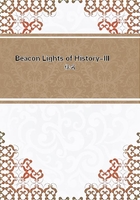
第64章
The assassination was a shock to Christendom. The most intrepid churchman of his age was slain at his post for doing, as he believed, his duty. No one felt the shock more than the King himself, who knew he would be held responsible for the murder. He dreaded the consequences, and shut himself up for three days in his chamber, refusing food, issuing orders for the arrest of the murderers, and sending ambassadors to the Pope to exculpate himself. Fearing an excommunication and an interdict, he swore on the Gospel, in one of the Norman cathedrals, that he had not commanded nor desired the death of the Archbishop; and stipulated to maintain at his own cost two hundred knights in the Holy Land, to abrogate the Constitutions of Clarendon, to reinvest the See of Canterbury with all he had wrested away, and even to undertake a crusade against the Saracens of Spain if the Pope desired. Amid the calamities which saddened his latter days, he felt that all were the judgments of God for his persecution of the martyr, and did penance at his tomb.
So Becket slew more by his death than he did by his life. His cause was gained by his blood: it arrested the encroachments of the Norman kings for more than three hundred years. He gained the gratitude of the Church and a martyr's crown. He was canonized as a saint. His shrine was enriched with princely offerings beyond any other object of popular veneration in the Middle Ages. Till the time of the Reformation a pilgrimage to that shrine was a common form of penance for people of all conditions, the nobility as well as the common people. Even miracles were reputed to be wrought at that shrine, while a drop of Becket's blood would purchase a domain!
Whatever may be said about the cause of Becket, to which there are two sides, there is no doubt about his popularity. Even the Reformation, and the changes made in the English Constitution, have not obliterated the veneration in which he was held for five hundred years. You cannot destroy respect for a man who is willing to be a martyr, whether his cause is right or wrong. If enlightened judgments declare that he was "a martyr of sacerdotal power, not of Christianity; of a caste, and not of mankind;" that he struggled for the authority and privileges of the clergy rather than for the good of his country,--still it will be conceded that he fought bravely and died with dignity. All people love heroism.
They are inclined to worship heroes; and especially when an unarmed priest dares to resist an unscrupulous and rapacious king, as Henry is well known to have been, and succeeds in tearing from his hands the spoils he has seized, there must be admiration. You cannot extinguish the tribute of the soul for heroism, any more than that of the mind for genius. The historian who seeks to pull down a hero from the pedestal on which he has been seated for ages plays a losing game. No brilliancy in sophistical pleadings can make men long prefer what is NEW to that which is TRUE. Becket is enshrined in the hearts of his countrymen, even as Cromwell is among the descendants of the Puritans; and substantially for the same reason,--because they both fought bravely for their respective causes,--the cause of the people in their respective ages. Both recognized God Almighty, and both contended against the despotism of kings seeking to be absolute, and in behalf of the people who, were ground down by military power. In the twelfth century the people looked up to the clergy as their deliverers and friends; in the seventeenth century to parliaments and lawyers. Becket was the champion of the clergy, even as Cromwell was the champion--at least at first--of the Parliament. Carlyle eulogizes Cromwell as much as Froude abuses Becket; but Becket, if more haughty and defiant than Cromwell in his private character, yet was truer to his principles.
He was a great hero, faithful to a great cause, as he regarded it, however averse this age may justly be to priestly domination. He must be judged by the standard which good and enlightened people adopted seven hundred years ago,--not in semi-barbarous England alone, but throughout the continent of Europe. This is not the standard which reason accepts to-day, I grant; but it is the standard by which Becket must be judged,--even as the standard which justified the encroachments of Leo the Great, or the rigorous rule of Tiberius and Marcus Aurelius, is not that which en-thrones Gustavus Adolphus and William of Orange in the heart of the civilized world.
AUTHORITIES
Eadmer's Life of Anselm; Historia Novarum; Sir J. Stephen's Life of Becket, of William of Malmsbury, and of Henry of Huntington;Correspondence of Thomas Becket, with that of Foliot, Bishop of London, and John of Salisbury; Chronicle of Peter of Peterborough;Chronicle of Ralph Niper, and that of Jocelyn of Brakeland;Dugdale's Monasticon; Freeman's Norman Conquest; Michelet's History of France; Green, Hume, Knight, Stubbs, among the English historians; Encyclopaedia Britannica; Hook's Lives of the Archbishops of Canterbury; Lord Littleton on Henry II.; Stanley's Memorials of Canterbury; Milman's Latin christianity; article by Froude; Morris's Life of Thomas a Becket; J. Craigie Robertson's Life of Thomas Becket.
THE FEUDAL SYSTEM.
About A. D. 800-1300.
There is no great character with whom Feudalism is especially identified. It was an institution of the Middle Ages, which grew out of the miseries and robberies that succeeded the fall of the Roman Empire.